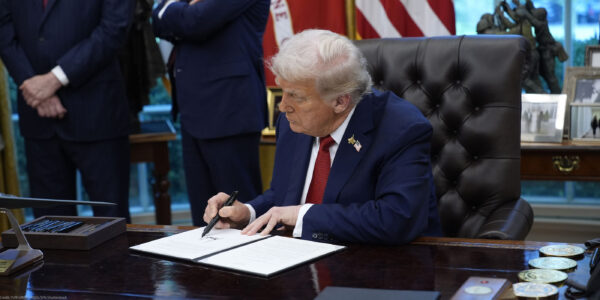Yesterday, we pestered anyone who would listen to us to arrange meetings with the Commission prosecutors and personnel, and we were given to believe that we were about as likely to get a meeting with the tooth fairy. So, when we serendipitously bumped into some of those prosecutors this morning in the parking lot outside the base's Starbucks hut, we concealed our surprise and struck up a conversation.
I asked one of the prosecutors -- who flinched theatrically when I told him I was an ACLU lawyer -- why it wouldn't have been preferable to try these detainees under an existing legal system, rather than inventing a new one on the fly. "If they had wanted to be tried in a civil law system," he intoned, "they should've attacked France." Before we could fish for more such gems, and in the middle of a harangue about Romania under Ceausescu, we were hurried away to our first appointment of the day: a tour of the kitchen where preparations were under way to serve the detainees a traditional Eid meal. With lemon chicken on our minds, we watched as the kitchen staff prepared what seemed to be ample portions of lamb kabobs, roast chicken, fresh baked bread, and rice.
For the four groups that have sent human rights observers to Military Commission proceedings - the ACLU, Amnesty International, Human Rights Watch, and Human Rights First - this was the closest we had been to where the detainees are housed. Our van drove along the outer boundary of Camp Delta, which is encircled by multiple rows of barbed wire fencing. Green plastic sheeting prevented us from seeing inside, and our requests to enter the camp were politely refused. Later, we would be permitted to stroll through Camp X-Ray, the original makeshift home of the first 312 detainees, which has been closed since the construction of Camp Delta in the spring of 2002 and is now a tangle of overgrown weeds and banana rat droppings.
Compared to yesterday and to previous visits, today was a day of relative openness. To our surprise, the Chief Prosecutor, Colonel Morris Davis, agreed to sit down with us, and at times he spoke candidly about some of the challenges he faces. One of our principal concerns about this Commission process is that there is no rule prohibiting the use of evidence obtained through torture or other coercive interrogation methods. (See the ACLU's brief challenging the military commissions in the case of the case of Salim Ahmed Hamdan). And our concern is far from speculative: through litigation under the Freedom of Information Act, we've obtained voluminous evidence - including the eyewitness accounts of FBI agents - that torture has occurred here and that "highly aggressive" interrogation techniques have been employed.
Omar Khadr, the Canadian teen who will appear before the Commission tomorrow, has alleged through counsel that during the course of his numerous interrogations, he was placed in stress positions, forced to urinate on himself, and then doused with pine oil solvent and used as a human mop to clean the floor; and that on various occasions he was threatened with transfer to other countries where he would be raped and tortured.
Colonel Davis acknowledged that the "treatment of detainees," and the rules permitting the use of evidence that would be categorically excluded in U.S. courts or in ordinary military courts martial, would present him with some difficult decisions as a prosecutor. "In my job, that will be one of those hard calls," he said. But, he "gets to drive the train," he "didn't get to build the railroad." And he believes that the prosecution may be able to present its case against Khadr without the need for any statements obtained through interrogation.
This afternoon, during a briefing with a public affairs officer, we asked whether, four years after the arrival of the first detainees here, interrogations of detainees are ongoing. His response - "We continue to interrogate and to receive troves of strategic intelligence that is vital to our War on Terror" - was somehow as dispiriting as anything we've heard or seen. When the Supreme Court considers the legitimacy of the Military Commission system in the Hamdan case this spring, its decision will be vitally important to our efforts to restore the rule of law to our government's conduct.
But nearly 99 percent of the detainees who have been brought here have never even been charged with crimes, even under the flawed Commission system. Some of them continue to be interrogated, even as the passage of time diminishes the relevance of any information that might be extracted from them. I'll be thinking about those detainees tomorrow morning when the Commission reconvenes. I'll report on the day's events tomorrow evening.


